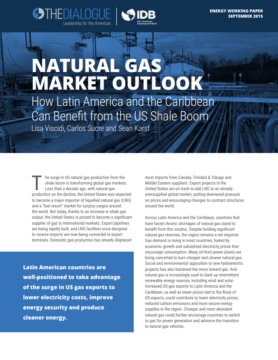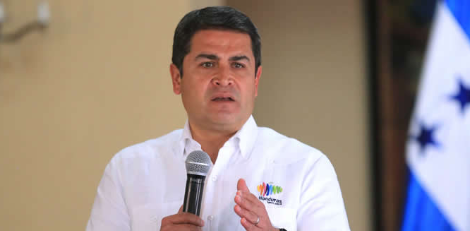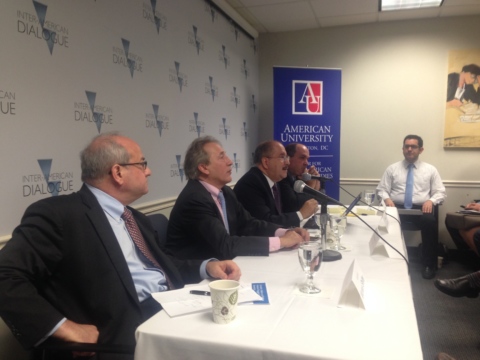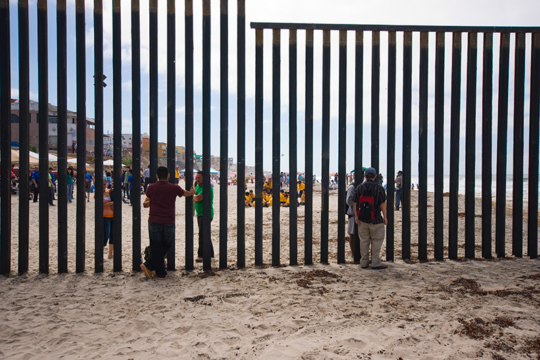
Natural Gas Market Outlook
Given their close proximity to the United States, LAC countries are well-positioned to capitalize on the surplus of US gas exports and current buyer’s market.
A Daily Publication of The Dialogue
Social unrest, which has been simmering in Honduras for months, erupted again into violent protests in recent weeks, forcing President Juan Orlando Hernández to repeal decrees that had raised concerns about the possible privatization of the country’s health and education sectors. Anti-government demonstrators burned and looted dozens of shipping containers of the local subsidiary of U.S.-based Dole Food and set fire the U.S. Embassy in Tegucigalpa. Are the protests becoming generalized demonstrations against Hernández’s government, similar to those last year in Nicaragua, and do they threaten the president’s ability to remain in power? Why have demonstrations taken on an anti-U.S. aspect? What effects are the protests, which have shuttered public hospitals and schools, having on the functioning of the country and its economy?
Jorge J. Kawas Mejía, partner at K&M Abogados: “Honduras has been plagued with social turmoil for decades due to a lack of public policies in critical areas such as education, energy, social security, legal security, health services, economic stability and investment protection, among others. The recent demonstrations that turned violent in several regions of the country are signs of growing civil unrest against a government overwhelmed with corruption scandals of high-ranking officials and rampant impunity of those responsible. Now, add to this explosive mixture a government that to an important segment of the population is illegitimate due to an unconstitutional reform that, in 2015, allowed for a second presidential term for Juan Orlando Hernández. The situation is reminiscent of the situation in neighboring Nicaragua, which has deeply disrupted the frail democracy of that country, which was ruled by a succession of dictators from the early 1920s until 1982. While Hondurans do not widely accept the use of violence as a means of protest, the fact is that the attack on American interests in Honduras is a desperate cry for help by hundreds of thousands of people who live in utter poverty, who don’t have a voice, who are only remembered every four years during political campaigns and who resent the U.S. government’s support of the current administration. For Honduras’ sake, the president and his ministers should adopt a conciliatory position to return things to normal as soon as possible. Otherwise, the economic effects of prolonged chaos may plunge the country into a deeper abyss.”
Hugo Llorens, former U.S. ambassador to Honduras: “The Hernández government’s announcement of privatization decrees for the health and education sectors triggered the anti-government demonstrations in Honduras. A case can be made that both sectors need significant, even radical, reforms, but the Honduran government badly mishandled the initiative, failing to socialize the proposals and seek broader public and institutional support prior to the announcement. The public messaging vacuum played into the hands of sector employees who fear that the reforms would harm their privileges and interests. In the heat of the moment, the demonstrations turned violent, and in the ensuing chaos, radical anti-U.S. elements infiltrated the demonstrations and targeted the private sector and the U.S. Embassy. These events have occurred in the context of an increasingly polarized political and social situation. Hernández’s undermining of the Honduran Constitution by seeking a second term and the questionable result of the 2017 presidential election have seriously weakened the Honduran state’s institutional legitimacy. The hope must be that Hernández not seek a third term and allow young blood to vie for the National Party leadership. All of this is worsened by the ham-fisted manner in which the Trump administration has managed ties with Honduras and more broadly with Central America. While Trump deserves credit for seeking to deal with the flow of illegal immigration, his inept tactical engagement has alienated the region, needlessly heightened tensions and strengthened anti-Americanism in the isthmus. The designation of a U.S. ambassador in Tegucigalpa would be a necessary start.”
Christine Wade, professor of political science and international studies at Washington College in Chestertown, Md.: “The most recent protests against the privatization of services related to health care and education are a continuation of the anti-corruption protests that occurred in the summer of 2015 and the anti-fraud protests that followed the 2017 election. They are a manifestation of growing, generalized discontent with the Hernández government and politics as usual in Honduras. Whether Hernández will withstand pressure to resign remains to be seen, but he appears to maintain the support of the armed forces and the U.S. Embassy. Unsurprisingly, state security agencies have responded to the protests with repression and may have even directed acts of violence during the protests as a pretense for a crackdown. Though it is not at all clear who set the fire at the U.S. Embassy, there can be little doubt that many Hondurans blame the United States, at least in part, for the country’s current state of affairs. Approaching the 10th anniversary of the coup, there is understandable animosity toward the United States. Washington has supported or been the architect of highly unpopular policies from the 2009 coup to the present. Many Hondurans feel the United States supported a fraudulent election that re-elected a corrupt president. Violence and insecurity remain at epidemic levels. Two-thirds of Hondurans live in poverty, and the poor have become poorer in recent years. There’s epidemic malnutrition. Honduras has marginal economic growth, but like security, it is only for the rich. This is why hundreds of thousands of Hondurans have been in the streets in recent weeks—and why they are likely to continue for some time to come.”
The Latin America Advisor features Q&A with leaders in politics, economics, and finance every business day. The publication is available to members of the Dialogue's Corporate Program and others by subscription.
Given their close proximity to the United States, LAC countries are well-positioned to capitalize on the surplus of US gas exports and current buyer’s market.
Honduras’ corruption, security, and political challenges are substantial—and no simple solution will solve all of them.
Migrant transnationalism, in addition to being an expression of culture, identity and love, is an important economic phenomenon.
 Honduran President Juan Orlando Hernández has faced violent anti-government demonstrations in recent weeks. // File Photo: Honduran Government.
Honduran President Juan Orlando Hernández has faced violent anti-government demonstrations in recent weeks. // File Photo: Honduran Government.

